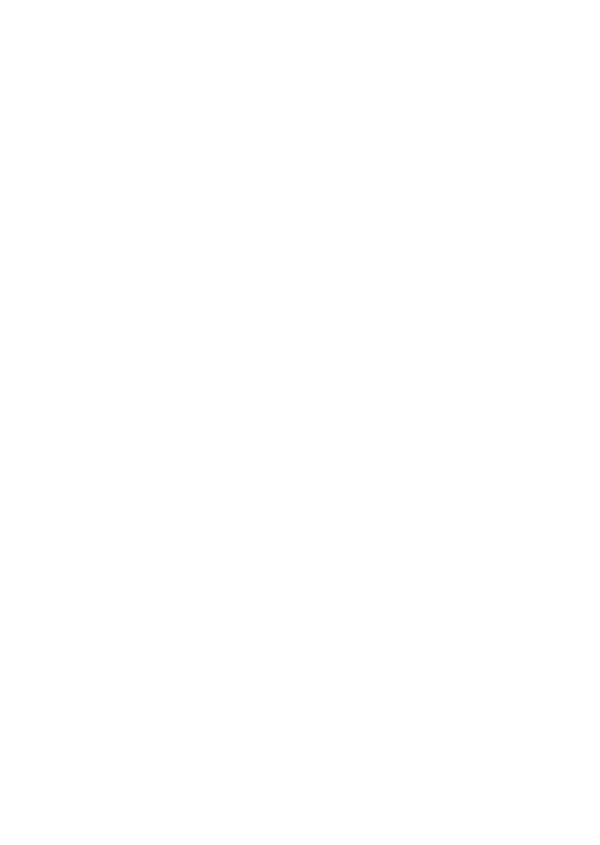
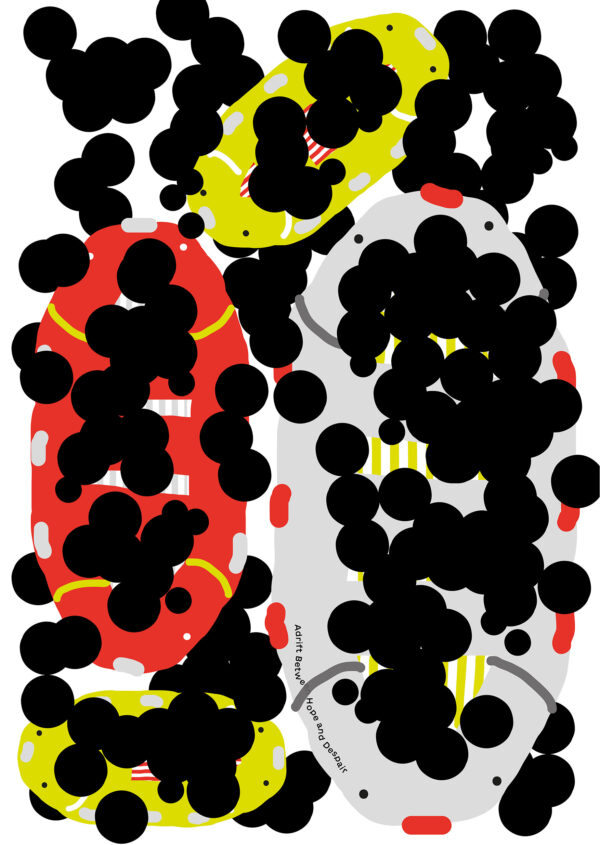

Aurore Huberty
Adrift between hope and despair
Switzerland
2025

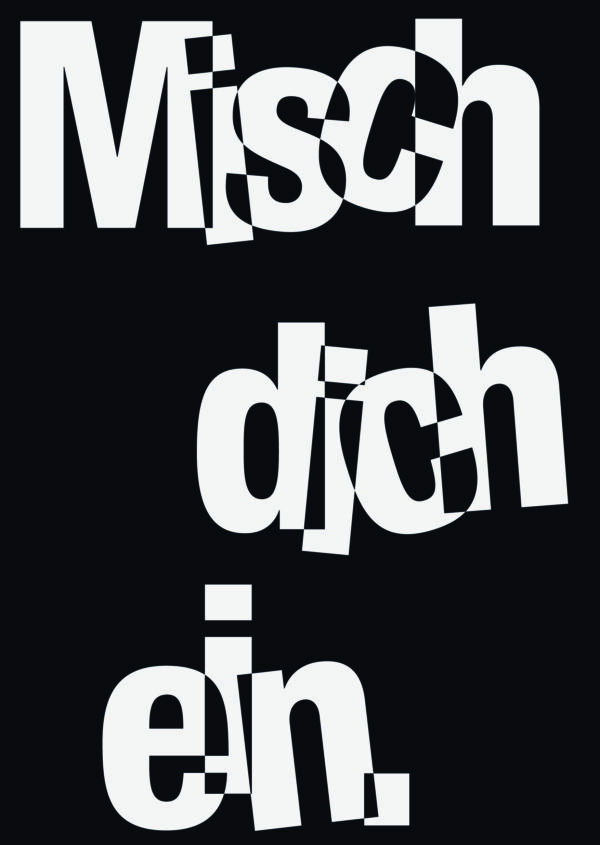

Selatin Selmani
Get invloved.
This poster is a call to action: Don’t look away. Don’t stay silent. Get involved. Getting involved doesn’t mean having perfect answers—it means taking a stand. Asking questions. Standing up. Raising your voice, even if it trembles. Don’t be intimidated. Get involved. Because silence is not an option.
Germany
2025

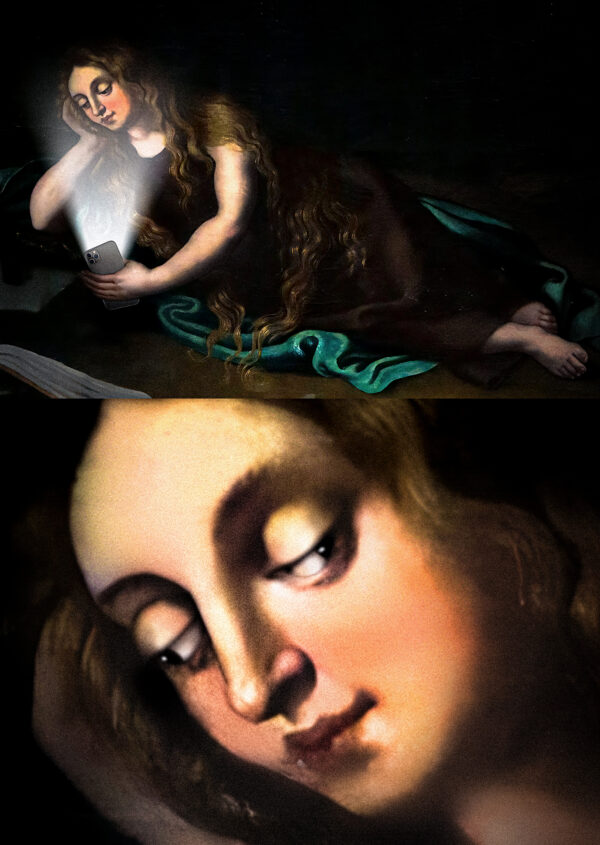

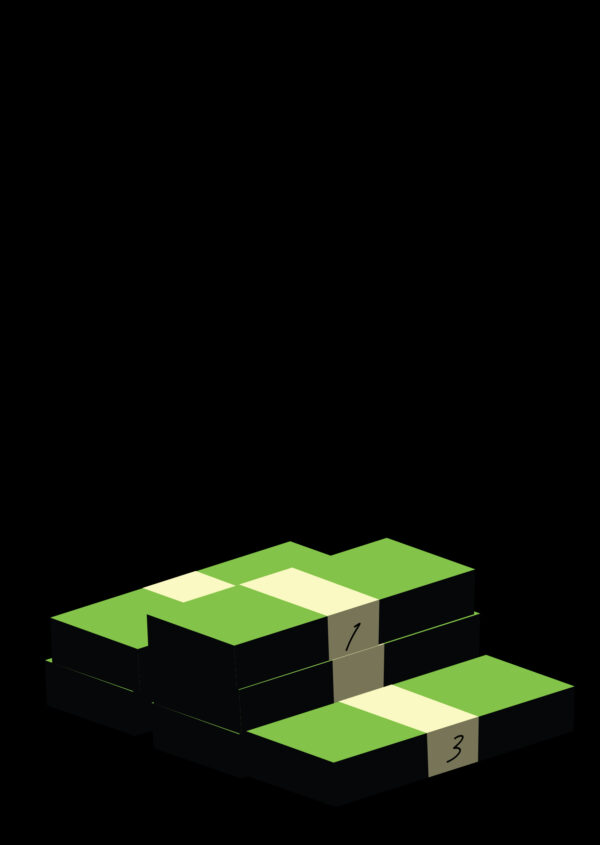

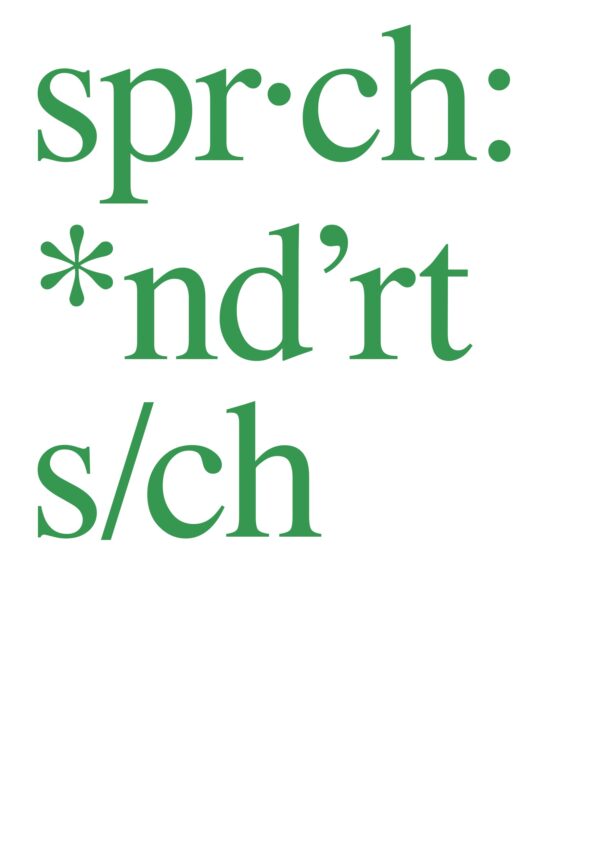

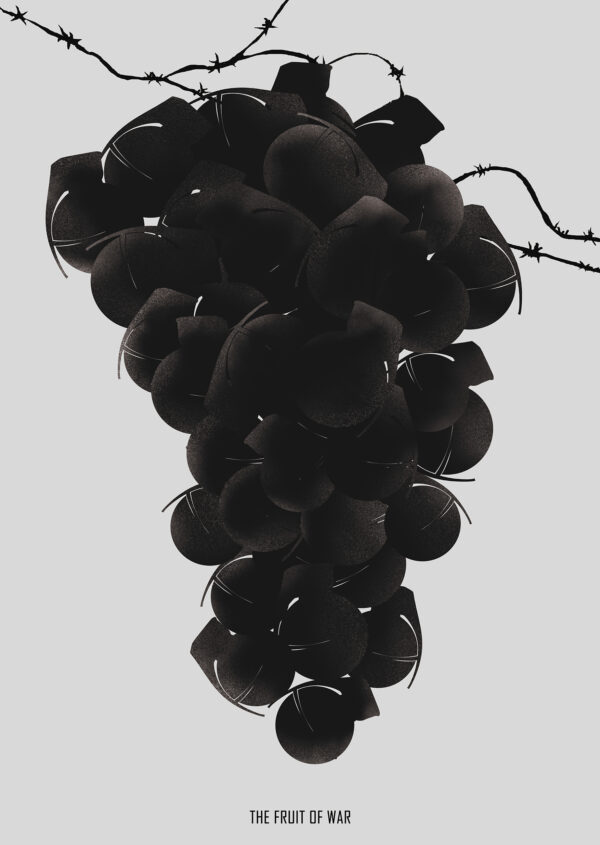

Chen Jie
The fruit of war
This artwork uses the form of traditional Chinese ink painting to depict grapes made from grenades and barbed wire—symbolizing how the consequences of war bring only suffering and sorrow, like bitter fruit. This sharply contrasts the sweetness usually associated with grapes, merging two opposite sensations into one. It invites the viewer to “taste the bitter fruit of war”—a plea for peace and the avoidance of conflict.
China
2025

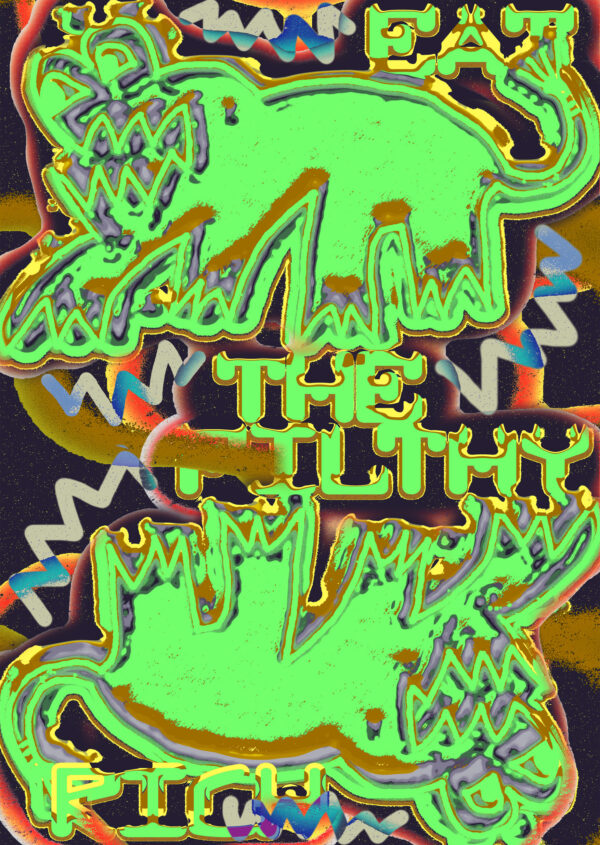

Lewin Harnisch
Eat the filthy rich
As the gap between rich and poor keeps growing, the wealthiest percentage of the global population gains more and more influence and power. This imbalance plays out not only in financial terms but across all aspects of social life.
In response to these injustices—especially in times when figures like Donald Trump are considered “the most powerful man in the world”—more and more people are taking to the streets. One slogan of this resistance: Eat the [Filthy] Rich—a call to action against excessive wealth and capitalism that dates back to the French Revolution.
Germany
2025



Illia Vaniushyn
The Orange President
Beneath the polished suit and synthetic hair lies rot. This poster shatters the illusion, revealing a man driven not by ethics, but by ego. Mold grows where it doesn’t belong. He flatters with lies, shirks responsibility, and plays both sides for personal gain. This is not diplomacy—it’s rot masquerading as leadership. A portrait of a man who speaks loudly and decays from within. Ladies and gentlemen: the Orange President.
Ukraine
2025

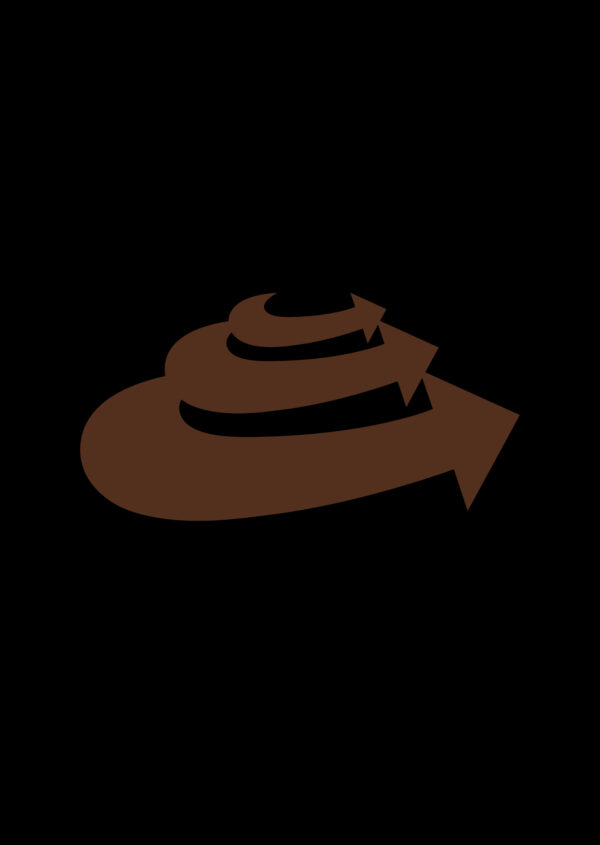

Jonas Fehlinger
Brown Shit
The AfD and its members are primarily known for their right-wing, racist, fascist, and inhumane statements. Statements reminiscent of the Nazis. For this reason, the arrow in the AfD logo was slightly altered, adapted, and colored brown. This clarifies what the AfD really is. Brown shit.
Germany
2025

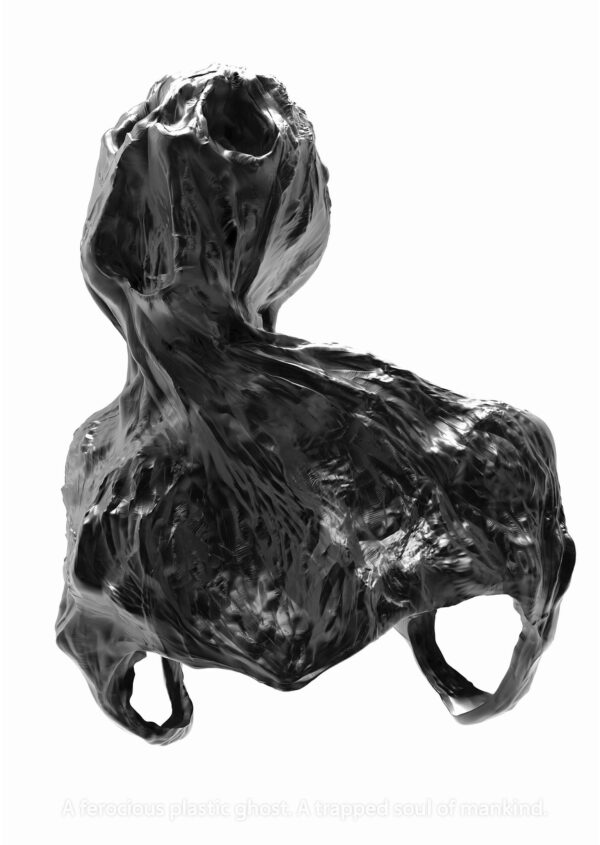

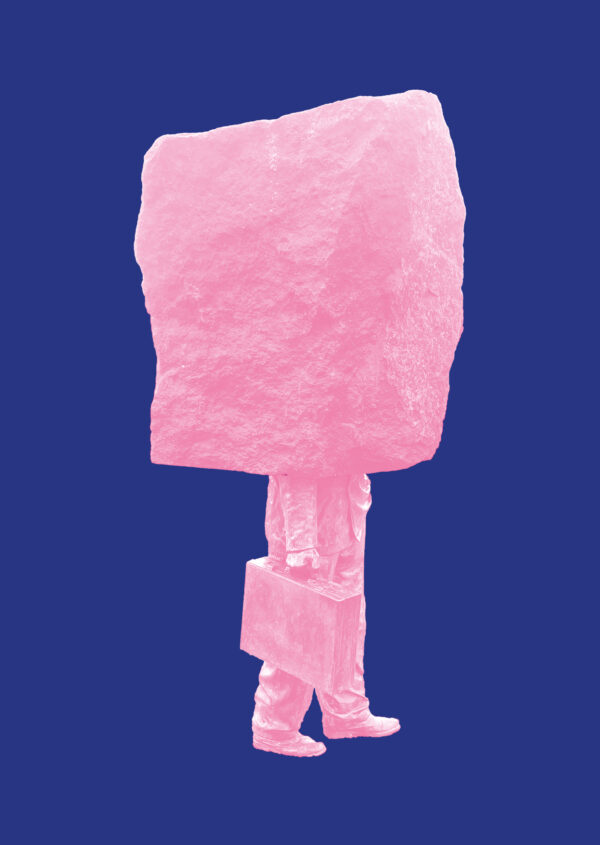

Jennifer Barth
Work, work, build a house
My poster explores the absurdity of a life centered almost entirely around work—caught in the daily grind of a labor-driven society where we rarely ask why we do what we do.
Instead of living, we simply function, day in and day out, following the motto: Work, work, build a house.
The central image is based on a photograph I took in Reykjavík, Iceland—of a stone statue with a massive boulder crushing its head. To me, it symbolizes the weight of societal expectations. I colored it pink in my poster—representing the illusion we often live in, trapped in a bubble of labor, consumption, and conformity.
Germany
2025

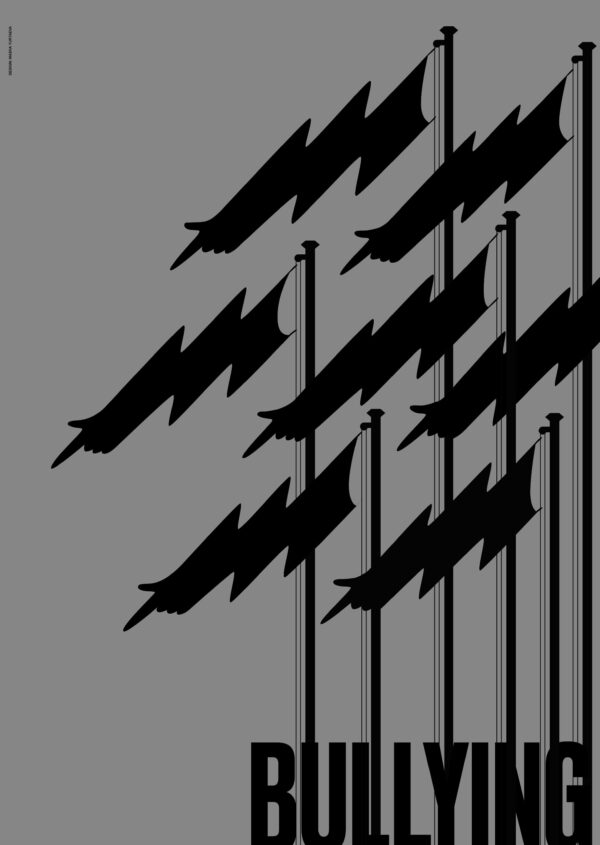

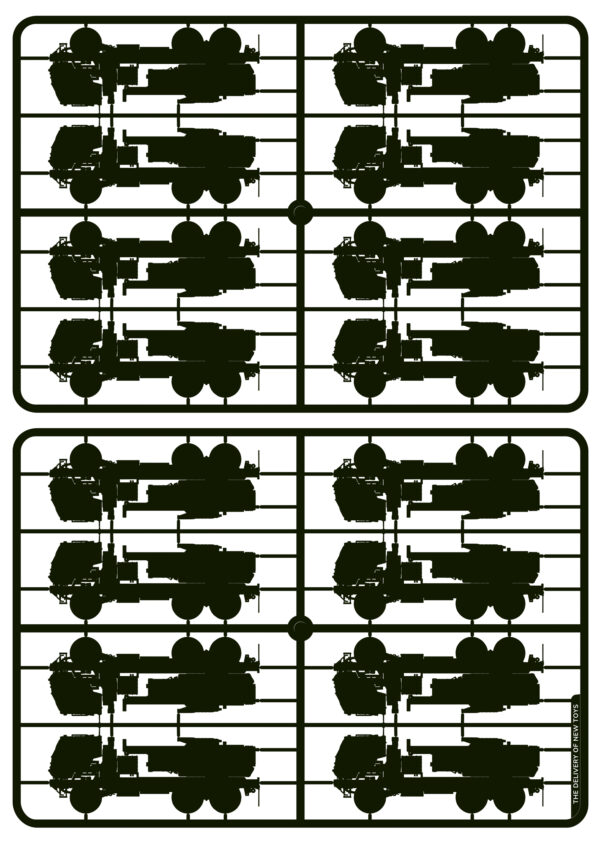

Ireneusz Borowski
The delivery of new toys – HIMARS
My poster depicts military equipment as toy models. Politicians, seated comfortably in safe places, eating lavish meals, decide the fate of others — treating war and the deaths of innocent people like a game. This work is a protest against that kind of leadership.
Poland
2025

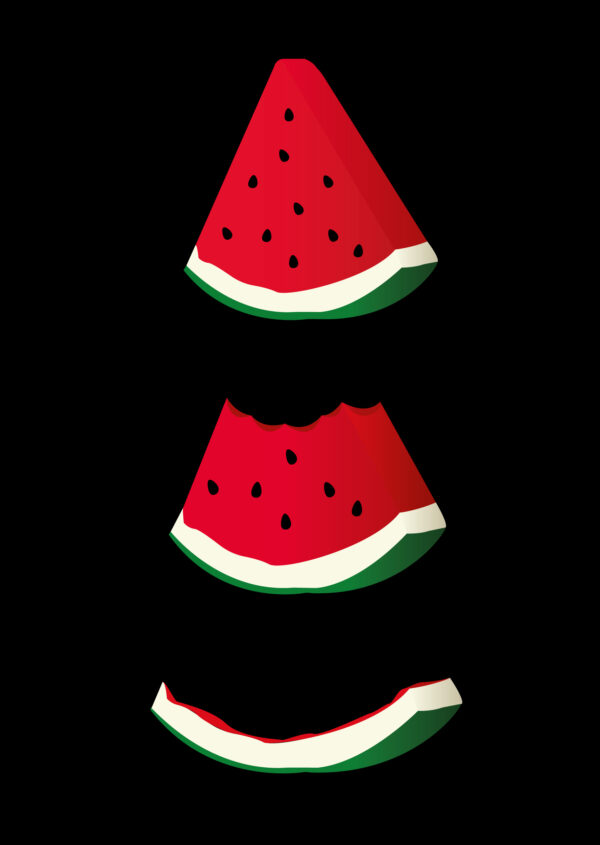

Nicole Martin
#freepalestine
October 7, 2023: Another chapter in decades of genocide.
In 1947, the United Nations proposed the partition of Palestine into two states: one Arab, one Jewish. According to the plan, 44% of the land was to go to 1.3 million Palestinians, while 600,000 Jews would receive 55%. This would have made Palestinians a minority in their own homeland. The two states were to be economically connected, but the Arab state and Palestinian leadership rejected the plan. It was never implemented.
Israel was founded, and war broke out. To this day, Palestinians are being displaced from their towns and villages.
Germany
2025

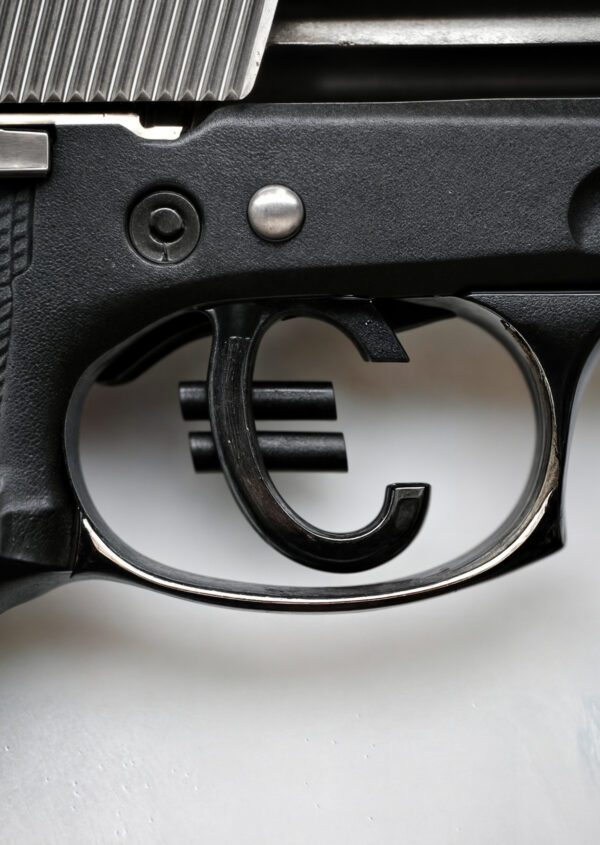

Joris Scholz
War pays
Bombs fall, people flee, cities crumble – war is pure catastrophe. For millions, it means pain, loss and fear. But not for everyone. There are those who profit from suffering: Shareholders whose investments in arms companies bring maximum profits. Heads of state who secure raw materials and power under the guise of peace. Banks that increase their profits with loans for arms deals. As long as there is money to be made from war, why should there be peace?
Germany
2025

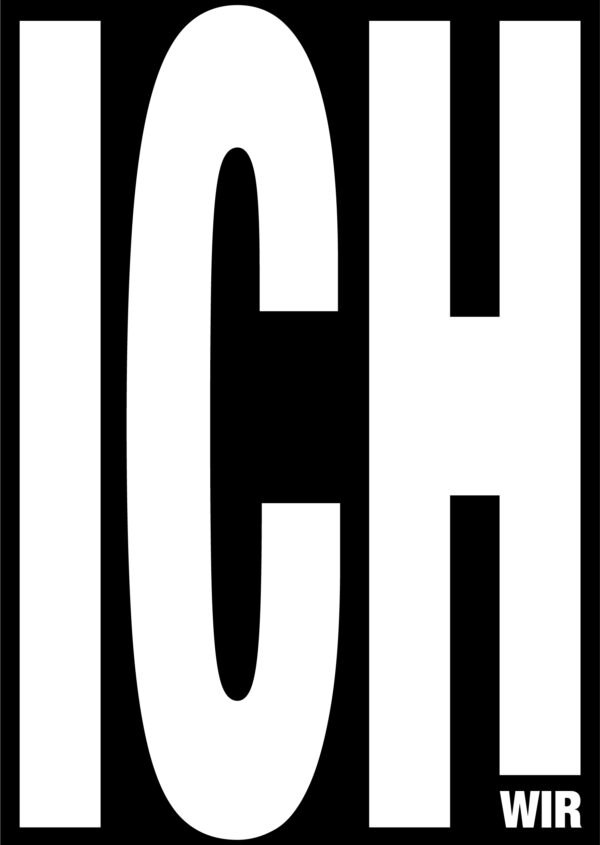

Valerie Kemper
I/WE
The poster ICH/WIR sends a clear message in a time when social cohesion seems to be falling apart. The oversized, white “I” screams at us—loud, dominant, impossible to miss.
Only on second glance do we notice the tiny “WE” tucked into the bottom corner—quiet, almost invisible.
This work is a critique of growing social indifference, isolation, and the erosion of collective responsibility, all fueled by an increasing obsession with the self.
In a time when individual concerns often outweigh the common good, the poster reminds us not to lose sight of the WE.
Germany
2025

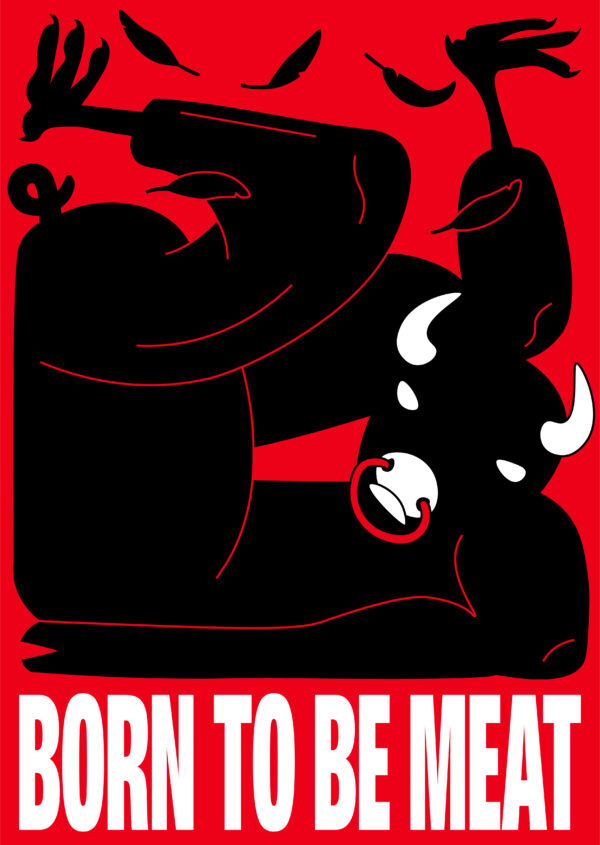

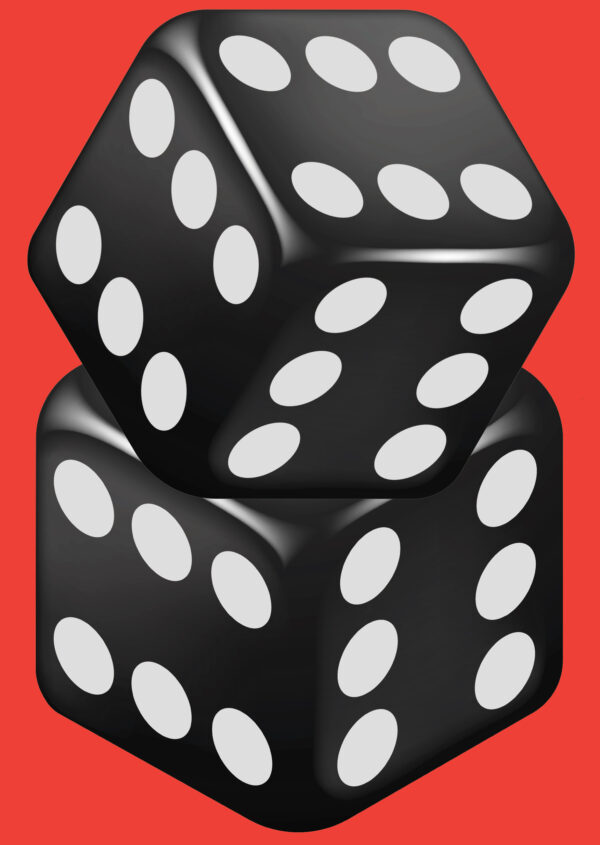

Riccardo Carrara
An unfair advantage
This poster highlights the privilege and advantage some people are born with. Dice are the ultimate symbol of chance—once thrown, no one can control the outcome, and it seems like everyone has equal odds. But in reality, some people play with better odds than others—without merit, effort, or achievement.
England
2025

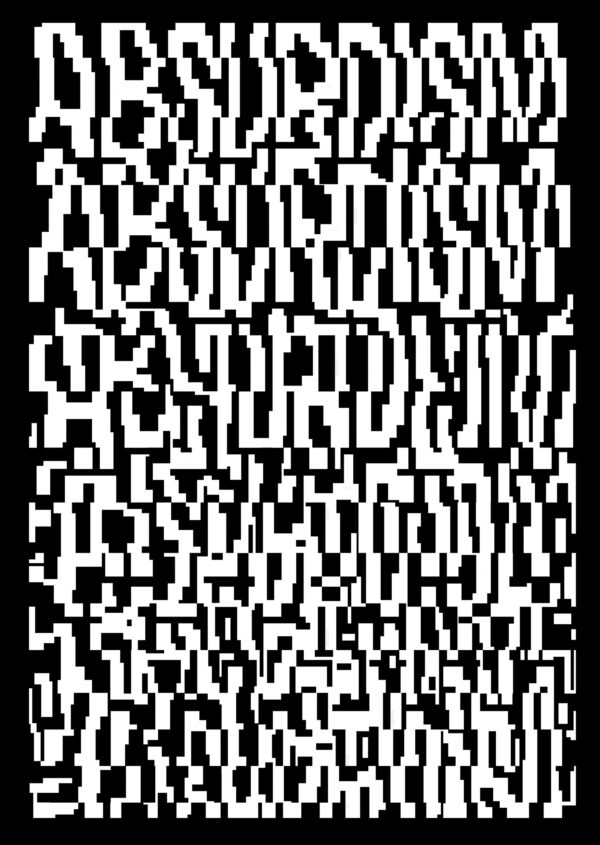

Márton Németh
Absurdism
The concept of the poster was inspired by the philosophy of the absurd — the compulsive search for meaning where there is none. As we vainly seek wholeness, the elements of our reality are abstracted into smaller and smaller parts, until they become pervasive noise. The more we try to make sense of it, the more it becomes unintelligible. And yet, we try.
Hungary
2025

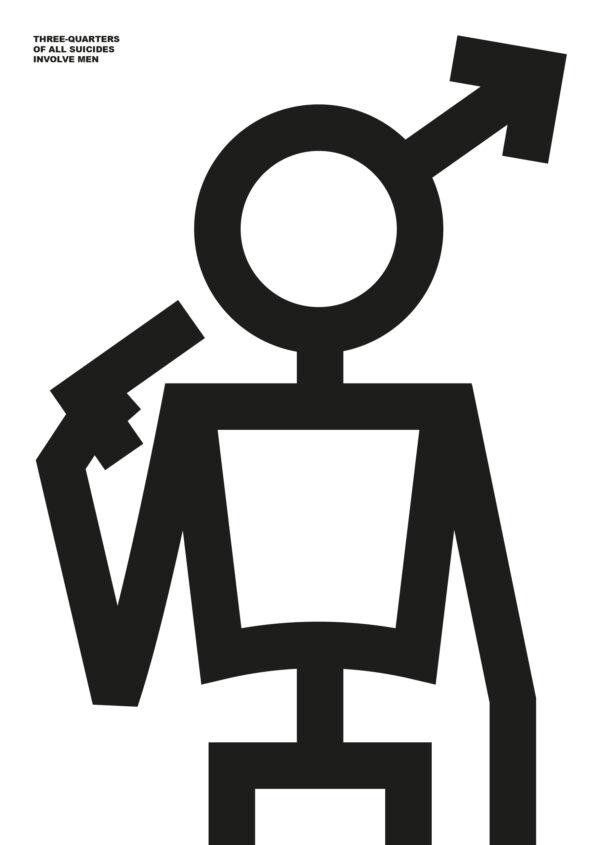

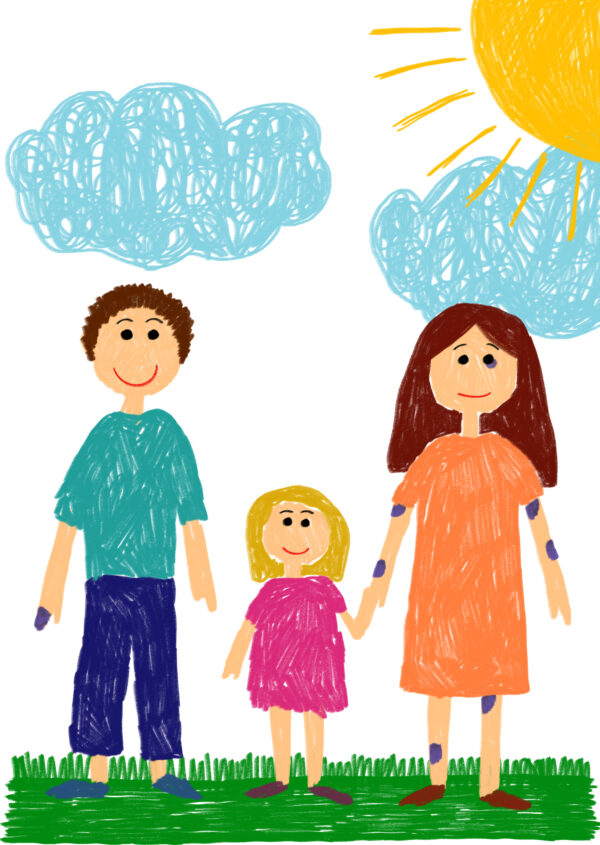

Michelle Mechler
As if painted
The goal of the poster is to raise awareness about domestic violence and reflect on its complexity. The image shows an idyllic “mother-father-child” scene, drawn in the style of a child’s crayon sketch. But subtle details hint at a disturbing reality behind the surface.
Germany
2025

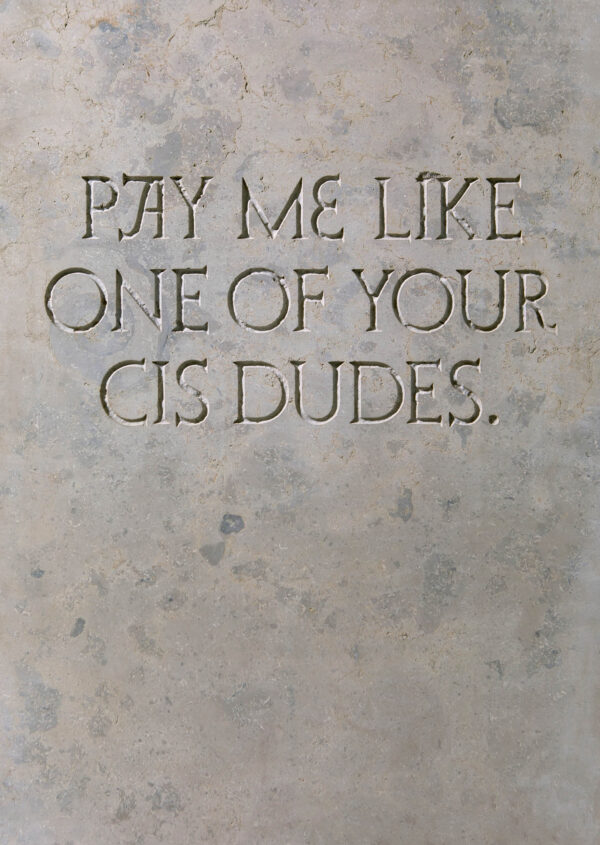

Laura Markert
Pay me like one of your Cis-dudes
This poster presents a feminist demand engraved into a stone tablet — borrowing the visual language of monuments to give weight to the ongoing protest against the gender pay gap, which still stands at 16%. Maybe we really do need to carve our demands into stone in order to be heard.
Truly etched in stone is the custom-designed display typeface Friedländer—inspired by an early sketch by Elisabeth Friedländer, one of Germany’s first female type designers.
Germany
2025

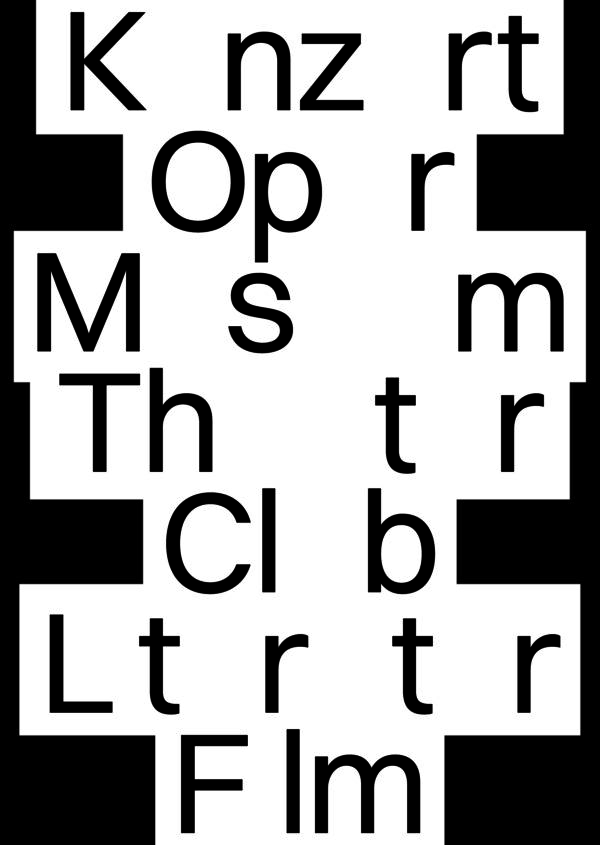

Felix Kind & Lukas Rösener
Kltrkrzng
The German government plans massive cuts to the federal budget to comply with the “debt brake.” Of all sectors, culture is hit especially hard. These austerity measures will leave significant gaps—many cultural institutions fear for their very existence.
Yet art and culture are essential for a diverse and open society.
Germany
2025

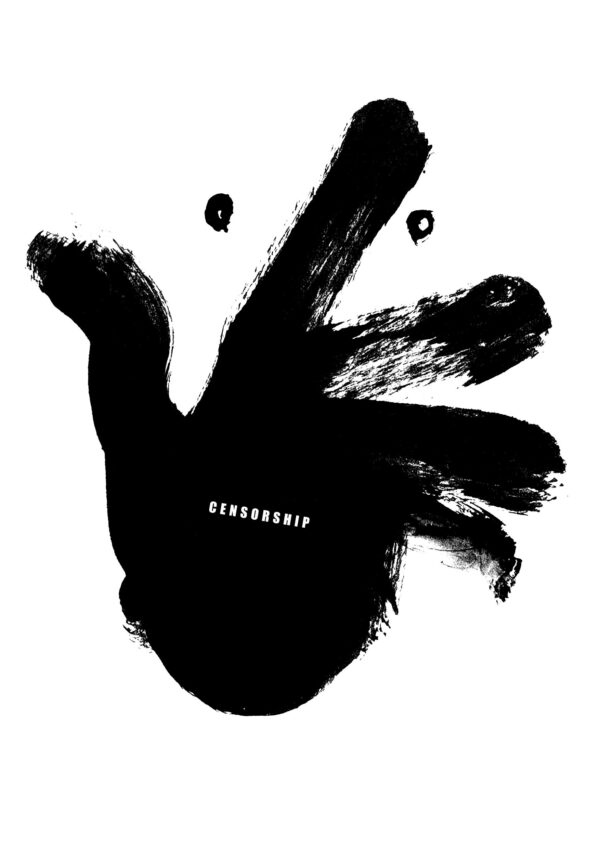

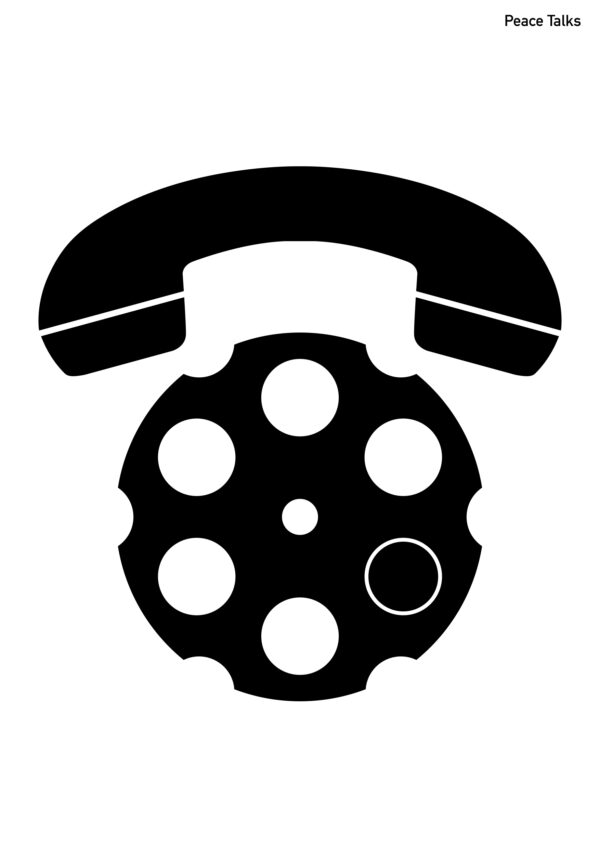

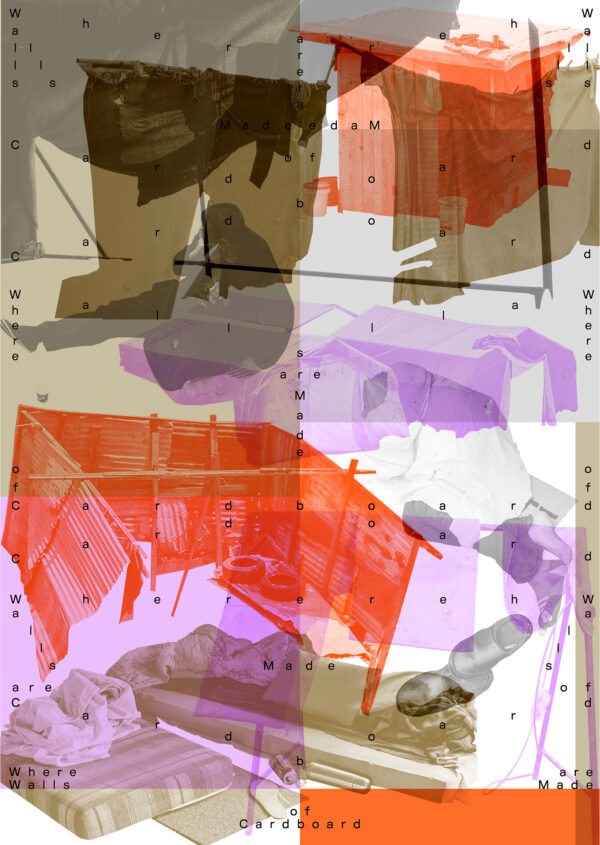

Aurore Huberty
Where walls are made of cardboard
This poster brings visibility to what the world often tries to hide: homelessness, slums, and favelas. Thousands of such places exist worldwide—pushed to the margins of society.
I used bold colors and layered compositions to symbolize cramped, overcrowded living. The limited poster size reflects the lack of space; overlapping rectangles mark the tiny areas people are forced to live in. The scattered typography represents people in motion—searching for stability and believing in a sustainable future. This work is a call to look closer—because behind every makeshift home, there is a human being.
Switzerland
2025

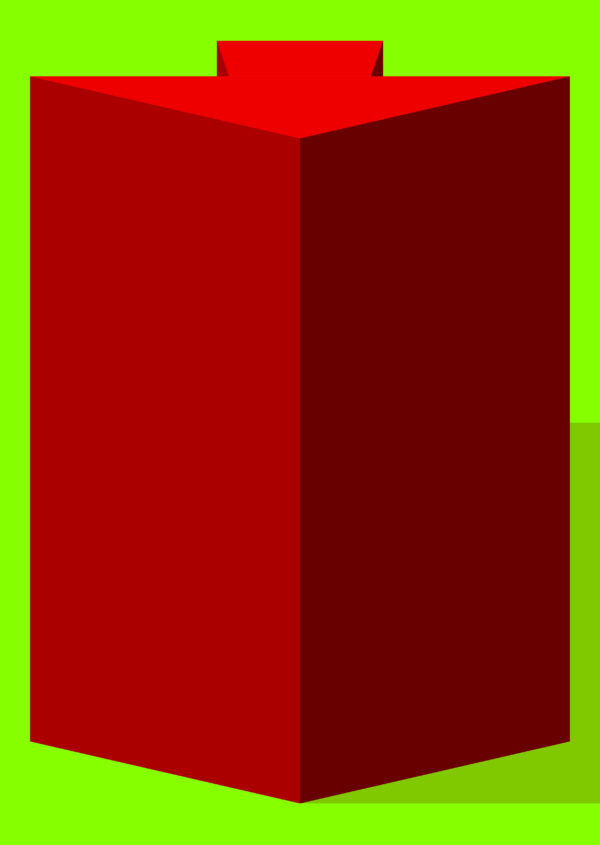

Benedikt Wienerroither
Angry at…
In the context of creation, this poster is about me: I’m angry at myself—angry that I’m not more angry at myself. But in the context of presentation, this anger turns on you. I’m angry at you for not being angry enough at yourself. And I’m probably angry at you now because you might not understand the concept behind this poster. We direct our anger outward, forgetting how hypocritical and unreflective that really is. It’s incredibly easy to point fingers at others instead of turning that anger inward. Ironically, this poster does exactly that.
Austria
2025

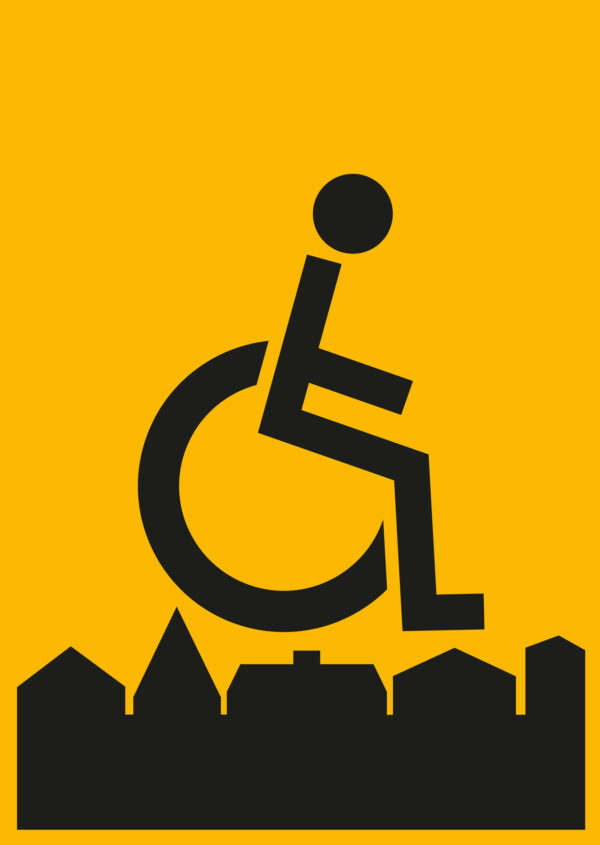

Michał Stachacz
City
This poster combines two familiar symbols: the disability icon and a city road sign.
The city skyline stands for broken, inaccessible public spaces—potholes, crumbling sidewalks, steep curbs, and the absence of smooth pathways. The person in the wheelchair is trapped in it.
Poland
2025

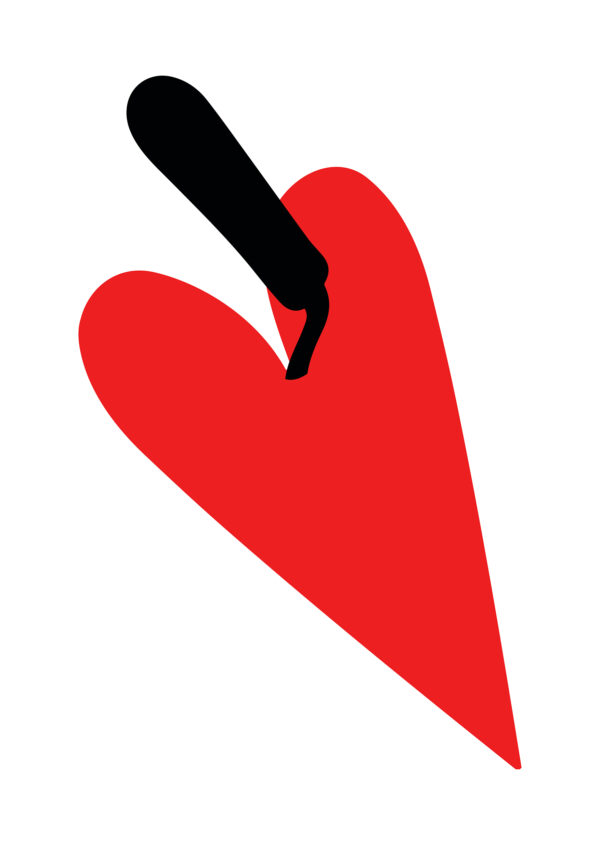

Damian Kłaczkiewicz
Let’s build good
The trowel is a tool for building. By connecting it with the symbol of the good — of love — we gain the strength of a powerful message.
Building the good is both incredibly simple and incredibly hard. But I believe that only through this act — through building the good — can we remain human in the truest, most humanistic sense.
Poland
2025

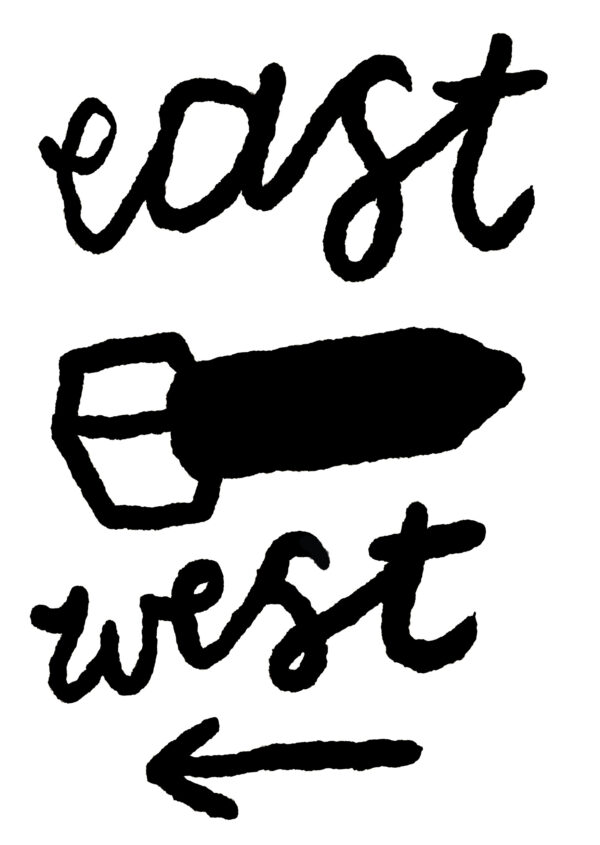

Piotr Pietrzak
East/West
The poster East/West was created with current events in the East in mind. I can confidently say: “Nothing changes in the East.” The central idea was to show two directions—an arrow pointing west and another east—as a kind of warning. The rocket symbolizes ongoing conflict on many fronts: racial, ethnic, and religious. Stop war!